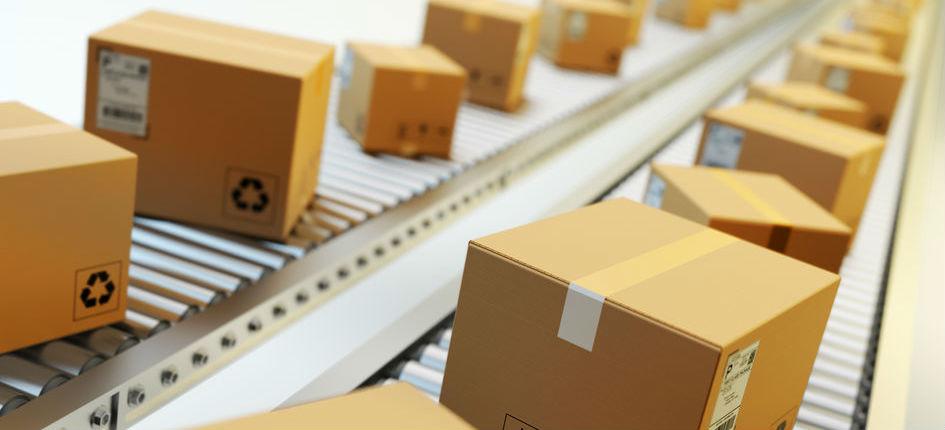Brazil is starting to recover from a long recession and turbulent political crisis. The impacts of this process have yet to be seen in the packaging sector. With a modest GDP growth forecast of 0.85% for 2019, the market is pinning its hopes on the planned economic reforms of the new government and anticipates a stronger recovery in 2020. A recent study by the consultancy firm IndoBras United casts some light on the latest trends for the packaging industry in Brazil:
Trading companies
In order to hedge against foreign exchange risk, recent researches point to several end-user clients that are outsourcing import and export activities to third-party trading companies that have the ability to off-set some of the import VAT taxes with tax credits. These companies are mostly located in the State of Santa Catarina in the South of Brazil where the cost of the VAT (ICMS) is reduced from 18% to 4%.
New consumption patterns
With lower purchasing power, Brazilians are adopting different consumption patterns in order to reduce spending. Downgrading pack sizes, preference for homemade meals, bulk purchases and offer/deal-hunting are just some of the alternatives highlighted during the interviews.
Consequently, consumer product manufacturers are listening to these new demands by changing their portfolio of offerings including adding smaller package sizes as well as jumbo sizes (catering to wholesale clubs) targeting lower-income and cost-conscious consumers. SKU proliferation has also increased with companies adding new products to their mix in order to meet changing consumer demands and strengthen their positions with formal retailers that are demanding volume, promotional offers, price reductions and increased margins for most of the product lines that cater to the middle classes.
Other trends
Other noteworthy trends include a more environmentally conscious shopper who is driving the growth of eco-friendly packs including reusable glass bottles for beverages and reusable plastics for organic products; along with a more mobile, assertive and impulse-driven consumer that is driving the growth for online shopping.
The growth of online consumption has brought about two further elements that directly impact product packaging, namely the need for sturdier packs with more visible information. Consumer product manufacturers are adapting their packs and labels accordingly to meet the consumer’s greater product transparency requirements, with some interviewees commenting on their purchase plans for new stretch and shrink sleeve labeling machines as well as in-house high-speed labeling machinery.
Market highlights
From a market standpoint, particular emphasis was given to both unbranded household cleaning and pet care categories that have seen a double-digit growth compared to the previous year. With 132 million animals, Brazil is the second largest pet market in the world, second only to the United States. There are more pet dogs than children in the country today and 44% of the homes in Brazil own at least one dog. To put matters into perspective, the ten biggest pet care companies in Brazil averaged a revenue growth of 21% in 2017, equivalent to twice as much as the ten largest food companies (10.8%) and three-fold that of the beverage industry (7.3%).
Outsourcing
Most interviewed companies in every consumer vertical and geography have displayed an increased propensity for outsourcing key areas of the value-chain; including end-of-line packaging and logistics. The outsourcing mentioned above for packaging lines is being done with co-packers as well as with complementary companies with excess capacity, and even “friendly” competitors.
Leasing
An increased number of companies have reported leasing of packaging equipment and machines due to the ongoing reduction of interest rates and the restricted availability of more traditional government-subsidized capital goods financing packages, namely the BNDES (Finame) and Caixa Economica Federal (Proger).
Used equipment
Meanwhile, several medium and smaller firms are purchasing used equipment from multinational firms that are upgrading their own lines or making existing product lines redundant. Several interviewees confirm that the market for second-hand equipment is heating up do to a need to bring products to market in a more cost-effective manner. Used equipment allows for high functionality and speeds at a fraction of the costs, particularly for those companies that can access qualified technical expertise for maintaining such equipment. Specialized asset management solution firms such as US based EquipNet are expanding operations rapidly in Brazil, particularly in the food and beverages verticals.
Local assembly
End-client aversion to foreign exchange risk coupled with foreign vendors (particularly of European origin) increasing their local value addition through local assembly agreements, has limited direct machinery imports, including those from larger multinationals. These assembly agreements are entered with Brazilian machine shops with excess capacity. This includes several traditional companies which are more than happy to take on “job-shop” work that keeps their employees busy if they have suitable machinery. While such arrangements involve risks associated with intellectual property rights and quality specifications, much of this is mitigated by establishing local subsidiaries in order to allow for local contractual arrangements.
On further investigations, we found that European and Asian competitors involved in the market have been able to mix in zero-duty imports of key components when outsourcing the assembly locally. Hence, the old course of action of obtaining local credit lines and reducing import costs, which was once the sole driver of local manufacturing, has now been “upgraded” to establishing a local LLC, which allows for zero-duty imports for key equipment components, coupled with outsourcing contracts in Brazil.
Local after-sales
Several interviewed companies commented that there has been a transition towards local Brazilian producers in the mid-range segments; however, that there is an unspoken criterion of local technical / after-sales maintenance requirement. End-users have expressed a deep-rooted negative sentiment with regards to paying for expensive expatriate service technicians to service imported equipment and the prohibitive costs of importing spare parts. In other words, there is a clear feeling that foreign vendors must have local technicians and local spare parts to ensure service continuity. A couple of interviewees said that several of their foreign suppliers have recently augmented local structures from only sales people to now include qualified technical staff.
Geographic distribution
Geographical industrial clusters are more evident in Brazil, exemplified by the cluster of pharmaceutical producers in Anapolis Industrial District in the hinterland of Brazil, home to numerous pharmaceutical companies that established presence over the past decade and are expanding their packaging lines by 20-25% per year. It is paramount to be aware of such rapidly growing clusters in the hinterlands of Brazil, which come with their own fiscal advantages such as duty exemptions for capital goods into the industrial districts.
Growth drivers
Growth drivers for packaging equipment include a combination of renewed consumer demand growth as well as pent-up industrial demand from manufacturing firms. Despite the lull in new capital expenditure by most of the companies, one major driver has been end-of-line automation. The need to move away from traditional packaging spans traditional multinational firms to even smaller-sized Brazilian firms as well as co-packers, thereby increasing demand for case forming, cartoning, palletizing and shrink wrapping solutions.


